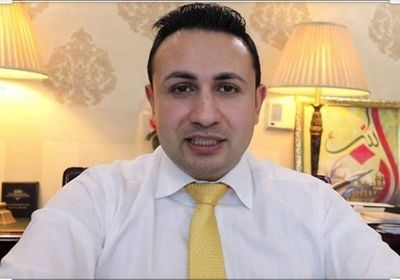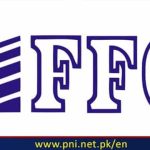ISLAMABAD, President Islamabad Chamber of Commerce and Industry (ICCI) Sardar Yasir Ilyas Khan on Sunday said that Pakistan has an overall exports potential of $150 billion through focusing on industrial competitiveness to increase the country’s exports in world potential markets.
“Industrial competitiveness, use of innovative technology, promotion of regional trade and the search for new markets used for exports could take domestic exports to the 150 billion targets” he said.
To achieve the ambitious target of $150 exports,” We need to focus more on the productive sectors including agriculture, tourism, textiles products and Information Technology for attaining the agenda of economic development and prosperity in the country, President ICCI said in an exclusive panel interview to APP.
President ICCI said that Pakistan has huge potential in Agro-Industry and “We can develop Agro-Industry in the country to achieve the overall potential of $100 billion export through the value addition in this sector.
He said to achieve the target of $100 billion in agri-exports, the country requires the complete transformation of this sector through the modernization of the agriculture sector by using innovative machinery and tools adopted by the modern agro based economies.
He said that overall, Pakistan needed industrial competitiveness to compete with other regional and global players.
“We need to enhance the quality of local products and provide competitive energy rates to the local industry,” he added.
Replying to a question on the regional trade and economic integration with regional countries, he said that Pakistan has missed the overall Rs 70 billion trade potential with regional economies like Afghanistan, India and Central Asian States (CARs).
He also appreciated the transhipment policy of the government for enhancing the transit trade with the regional countries including Afghanistan, Uzbekistan and other Central Asian States.
He said that trade and economic integration with regional countries were the key factors for connectivity and stronger ties with regional countries, which also boosted the region as a global trading player like European Union(EU).
To another question about Pakistan’s relations with the untapped region of Africa and the government’s ‘Look Africa Campaign’, he said Africa is a big potential market for local products and textiles, pharmaceutical and IT sectors to get a huge opportunity to enhance the trade connection with African countries including Kenya.
He informed that Pakistan has huge potential of increasing trade volume with African countries in textile products worth US$15 billion and in the Pharmaceutical sector worth US$9 billion and also more potential in IT products.
Yasir Ilyas said that transfer of industries from the China will play key role for industrial development in Pakistan and briefed that the ICCI had plan and proposed the government to develop Industrial State in Capital city to provide conducive business environment to the local and foreign investors to contribute in country’s industrial growth.
He said that for the construction of a new proposed Industrial State, the local business community would contribute Rs 5 billion to initiate these mega projects in Islamabad.
He informed that newly proposed industrial zones would be evolved at the same pattern of Special Economic Zones (SEZs) of China Pakistan Economic Corridor (CPEC) and “We would offer equal investment opportunities to the local and foreign investors in the Zone.”
President ICCI said that this industrial zone proposed by the ICCI would be fully equipped with all modern facilities including one window operation (One-stop shop) for achieving the objective of Ease of Doing Business (EODB) in the country.
Replying to another question, he stressed the need for introducing structural reforms in the Federal Board of Revenue (FBR) to enhance its capacity for achieving the target of the country’s revenue.
“Automation through modern information technology tools, gradual reduction of human intervention in the system and professional staff is essential for the institutional development of FBR. Introducing automation in the FBR will not only increase the annual revenue collection but will also get rid of issues like harassment of the business community” he said.
President ICCI said that through the efficiency, transparency, accountability and coordination with the business community, the government can achieve the objectives of the current economic agenda.
He said that FBR needed to enhance the efficiency of the tax system for promoting cordial relations between the tax collection institutions and business community of the country, which would also improve the Ease of Doing Business (EODB) ranking and overall business environment of the country.
President ICCI said that the business community was ready to contribute in achieving Rs 8000 billion tax revenue for the country, provided the government facilitates the community in achieving this objective.
He also stressed the need to enhance the coordination between the government and chambers of commerce to discuss the community proposal for upcoming budget 2021-22 to materialize the inputs of the business community in Budget.
He also suggested the simplification of the tax collection process for filers saying that tax form should be simplified before June 30, 2021 and orientation should be provided to the general public, traders and the exporters.
He also recommended introducing a fixed tax rate of 2 percent to encourage new tax filers, which is to be encouraged through incentives.
The old taxpayers should also be respected and facilitated by adding tax payers’ counters at all state owned departments across the country.
President ICCI also offered to reduce the tax on all potential sectors including small and large scale manufacturing and reduction of import and custom duties on products, especially the products related to plant , machinery and all products related to construction, real estate, tourism, medical, agriculture or any industry related sector.
While appreciating the current, ‘Tariff Policy’ of the government, he said that growth in potential industries, especially value addition through the transfer of technology is dependent on the duties structure.
He said that Policy Rate should be reviewed and settled below 6 percent to provide better business opportunities for Small and Medium Enterprises (SMEs).
Follow the PNI Facebook page for the latest news and updates.









